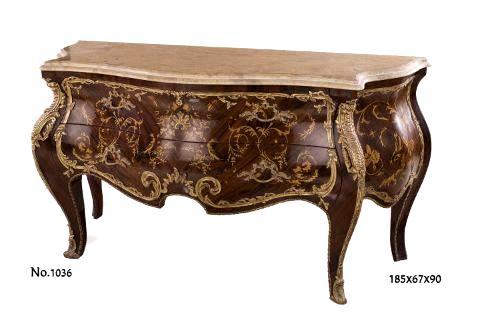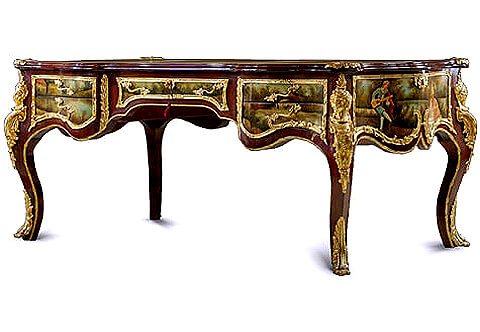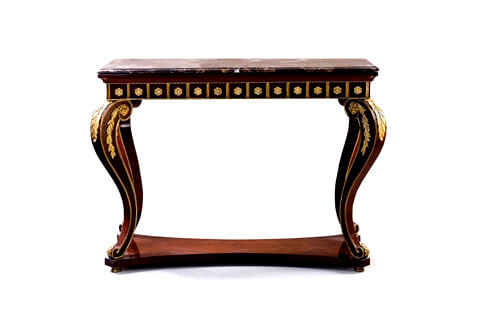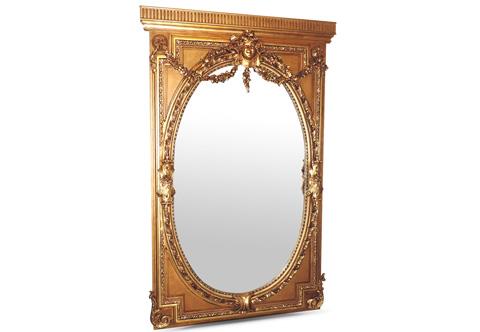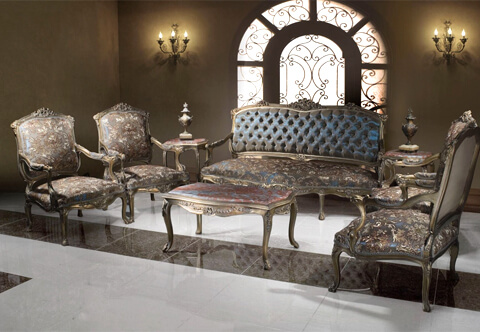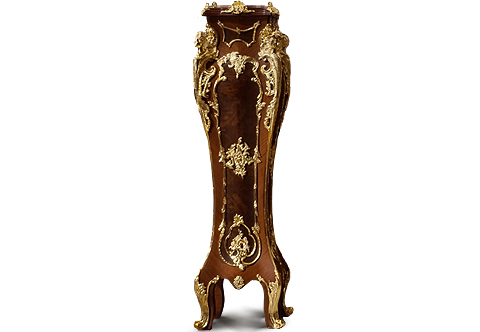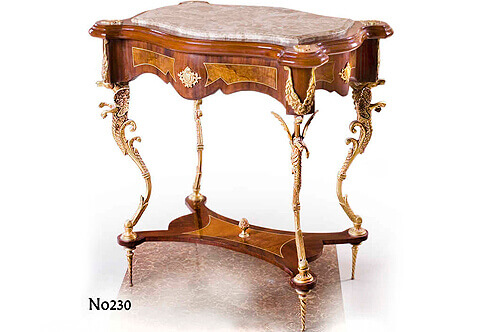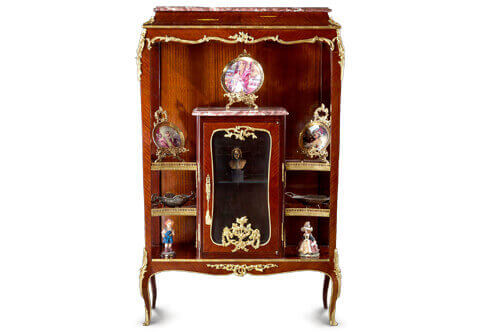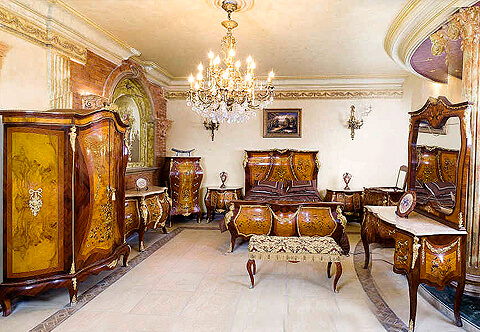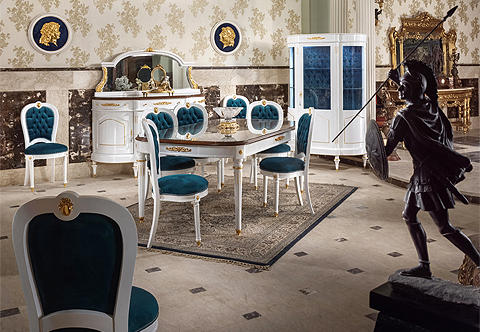French late 19th Century Louis XVI style ormolu-mounted and white lacquered Grand Royal Pedestal after the model by Jean-Henri Riesener
Ref#ST-1034-B | Description
A prepossessing French late 19th century Louis XVI style ormolu-mounted and highly finished white lacquered Grand Royal Pedestal after the model by the famous German ébéniste (cabinetmaker) Jean-Henri Riesener;
Surmounted by a stepped white carrara marble top and canted front corners above an Egg-and-Dart ormolu trim, on a rectangular concave upper section followed and centered by a Mercury sunburst ormolu mask with crossed lower branches, the angles with an acanthus-cast scrolled volute hung and foliate festoons, above the tapering upright, the paneled front finely chiseled and burnished with a flower-filled Rinceau style vase ormolu pattern flanked by scrolling foliage and floral swags issuing suspending festoons above a Lyre and crossing blowing instruments with surrounding wreath, all placed within an ormolu beaded trim, on winged lion-paw feet and shaped plinth on toupie leafy feet.
Ref#ST-1034-B
H:154 x W:56 x D:36cm
Louis XVI Style | Jean-Henri Riesener
Jean-Henri Riesener
Jean-Henri Riesener, (born July 4.1734, Gladbeck, Münster [Germany]—died Jan. 6.1806, Paris, France), the best-known cabinetmaker in France during the reign of Louis XVI. Riesener was the son of an usher in the law courts of the elector of Cologne. After moving to Paris he joined the workshop of Jean-François Oeben in 1754, and, when Oeben died in 1763, Riesener was put in charge of the workshop and later married his master’s widow.
He made his name by completing and delivering to Louis XV the famous bureau du roi (“king’s desk”), begun by Oeben. In 1774 he was made royal cabinetmaker and from then onward was the regular supplier of furniture to the queen, Marie-Antoinette. Although he was one of the most versatile of cabinetmakers, his services were in little demand during the French Revolutionary period because of his political status.
Riesener used both European and exotic woods, with a preference for mahogany; he occasionally used lacquer and mother-of-pearl to enrich the surfaces of his works. His finished style was pure Louis xvi, with its rectilinear side view and harmonious ornamentation.


